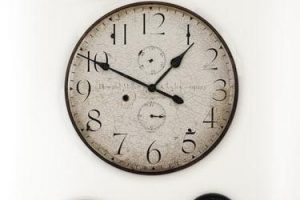I am OK. Really, I am OK.
Though I know I am not.
2014 feels like a lifetime ago. It was a busy period, as I had just started working for a new manager in my company — it was all about how to adjust to the new team, the new boss and environment, This is London, what else to think about but work?. A challenge, but everything was fine, more or less. Just the usual annoyances that we complain about day in and day out. You know, nothing major.
Little did I know that my life was about to be turned upside down.
Early in January 2015 my Dad had to go to hospital. A bit of a worry but he would get better. I remember vacillating over booking a flight back home or not, evaluating in my mind the urgency of the matter against work and other commitments. In the end I decided to travel, even though I had just come back from my usual Christmas visit.
My Dad, true to himself, was not making a fuss about it. I was sure he had been suffering in silence because of his deep dislike of hospitals and I told him off for not going earlier.
He was very quiet.
About three weeks later he was told he should be getting ready to go back home. Life would be back to normal, phew. And then, suddenly, he got much worse. I learnt afterwards that it happens often: someone who is very sick suddenly experiences a “renaissance” just to get extremely sick again very quickly. Parts of his body (lungs, heart) simply stopped working.
And, just like that, he was gone.
To say that things changed afterwards would be an understatement. It was not only my family dynamics that changed overnight, but also what was going on in my head and in my heart. Shock, anger, sadness, disbelief.
I did not want to wake up in the mornings. I couldn’t really focus on my job. I thought of death and dying. A lot. If someone smiled at me in the lift, I got emotional and wanted to cry. I started seeing the world divided in two: those who had lost someone they loved, and those who hadn’t. Things that mattered before were no longer important. I couldn’t sleep very well. I didn’t feel like making any plans. What was the point of anything, really?
I guess it would have been easy to see that I was just going through deep grief. It was just what they call situational depression. Anyone would have thought it was normal. If I had told anyone, that is. But I was scared. I did not want to talk about it. Much better to pretend everything was ok, and carry on.
Past the first shock, sadness seemed to become the natural state of things. I couldn’t remember how I felt before and I certainly could not see an end in sight. Nerdy as I am, I found no book or course that could help me navigate the fog. Nothing prepared me for the steep learning curve.
In my head, I undertook a deconstruction of sorts. I couldn’t help analyzing every little piece of my life, once and again. Is this job that I have been working so much for, something that I want? Was my boyfriend really such a good guy? What about this quiet person that I thought did not like me that much, but asks me how I am often? Who were my friends, really?.
I suppose that, being rather analytical, this was my way of trying to find some order in my inner chaos. This kind of thing isn’t taught at school. No one talks about death, so I found myself really unprepared to face all this mixture of emotions. Life is fragile, temporary and entirely out of my control and no one had bothered to tell me.
Did I say I was angry?
Death is not just an experience you recover from and heal after a while. It leaves you at your most vulnerable. Eventually I had to humble myself and accept that I was completely powerless and overwhelmed by the situation.
In a way this was liberating. I was used to being in situations where I had a certain type of control. Hey, I am a coach, and I am used to telling people that “there is always a choice”?. But death is the one situation where we can do absolutely nothing except coping the best we can.
One morning I simply did not want to get out of bed. I was completely disconnected from my life as it was, and I started thinking that its routines and obligations were absurd. I simply did not have the presence of mind to face them.
This was a turning point for me. I knew that if I stayed in bed, it would be difficult to wake up the next day, and the next day. I had to find some strength within myself. I decided to set small goals. The first one of course was getting out of bed. Maybe leaving the house. Perhaps even wearing a bit of lipstick.
I felt extremely lonely with these feelings. I did not want attention or pity or commiseration so I did not reach out. I did not have the energy to explain myself anyway. Many people told me afterwards that they had no idea I was feeling so miserable.
One day some nice friends invited me for lunch and a walk in Kew Gardens. That was a rare good day, though I remember feeling very distant. In the shop, I bought a scented soap. I slept with the soap on my pillow for many months afterwards. That soap I liked and it reminded me of my friends. They seemed to have enjoyed my company, even if I did not enjoy my own company.
Another day I found an app with short meditations on different topics: anger, loneliness, connecting with yourself…that really helped me sleep a bit better.
I then decided that I needed a goal important enough to get me out of bed for several days in a row. Running a marathon was not my type of thing, so I decided to write a book, my childhood dream. And I did. One step at a time I planned all the chapters, and then I started writing. A little bit, every day. And one day, six months down the line, the book was finished.
I also realized that I could not do this alone. That it didn’t matter how much thinking I did, I could not think myself out of the situation. I have never needed people more than then. I needed all interactions, small and big. I made myself go out and talk to people, even if I didn’t feel like it.
Life went on. One day, after about a year and a half of misery, I was with a group of friends having a drink and I realized I was having a good time. I was revisiting feeling like myself. A lightness, a vague sense of hope for the future. I still had my moments — but I was moving in the right direction.
Today I no longer feel that life is meaningless. I still like being in my own head, sometimes too much, but there is more to life than that. Here comes the cliché: it is only through the help, love and compassion of others that can you heal.
I wish I had been spared that difficult period. And I still want my Dad back of course. But I learnt a lot about myself, about my own inner resources and about what is important in life. In the future, whatever happens, I know I will be OK.





Leave a Reply
Your email is safe with us.